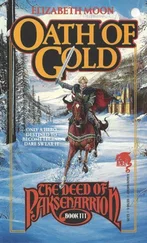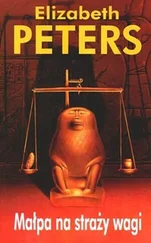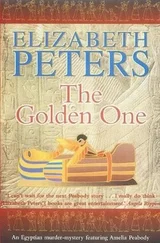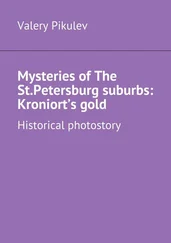That answered one question, unless Tony was a lot sneakier than I had ever known him to be. “What else did Friedl tell you?”
“She didn’t make a lot of sense,” Tony admitted, “what did she tell you ?”
“She hasn’t told me anything yet,” I said, with perfect truth.
“Well, let’s go see her. Maybe the two of us can extract some information. So far it’s a damned fishy story.”
I was about to endorse this assessment when Tony’s mouth took on the wistful curve that made strong women want to mother him. “It would be too good to be true,” he said longingly.
Friedl did not rise to greet us. She gave Tony her hand at an angle that made it impossible for him to do anything with it except kiss it.
Usually I can tell when people are lying. Friedl defeated me; she was so accustomed to putting on an act that everything she said sounded phony. The gist of her long and rambling narrative was that (a) her husband had some hidden treasure, (b) she didn’t know what it was, and (c) she didn’t know where it was.
Though visibly moved by her quivering lips and pathetic story, Tony was not moved to the point of excessive gullibility. Tactfully he pointed out that old men sometimes suffer from delusions.
“He was not old,” Friedl protested.
“Seventy-five?” I suggested.
“Not in his heart—in his love…” Friedl covered her face with her hands.
Tony patted her clumsily on the shoulder and gave me a reproachful look. Like all men, he is quite willing to believe that a young and beautiful girl will adore him when he’s eighty.
Friedl restrained her grief, which had left not a smudge on her make-up, and proceeded with her story. She had not learned of the treasure until the past spring. It was something her husband had rescued at the end of the war and had kept safely hidden for forty years. Recently, however, he had begun to fear that his enemies had finally tracked him down.
“Enemies?” Tony said. “What enemies?”
Friedl opened her eyes so wide her mascara flaked. “The Russians. The Communists.”
“Oh,” said Tony.
I said, “Bless their red hearts, they make such handy villains.”
The comment passed over, or through, Friedl’s head. She went on. Her husband would tell her nothing more for fear of endangering her, and when she suggested that he turn the treasure over to the authorities—she didn’t specify which authorities and neither of us pressed her—he had angrily refused. The treasure was his. It had passed through many hands, the original ownership had always been in dispute, and now it was his by right of possession. He had as much right to it as anyone. He had saved it.
This part of the story had the ring of truth.
Then, late in the fall, Hoffman had changed his mind. His enemies were closing in. He feared for his life—and hers. He had spoken of getting in touch with me—was I sure, absolutely certain, he had not told me…
“I have no idea where it might be,” I said. “That’s the truth, Frau Hoffman. Are you sure you —”
“No. I mean—yes. Would I have called on you for help if I knew?”
The answer to that was so obvious no one felt the need of voicing it. Tony cleared his throat. “Forgive me, Friedl—Frau Hoffman—”
She interrupted him, looking up at him from under her lashes and reaching for his hand. “Please, you must not be so formal. We are old friends.”
“Thank you.” Blushing, Tony did not emulate her use of the informal du . “I was about to say—I don’t see how we can help you. I must be honest; I am still not convinced your husband was—er—in his right mind. All this business about Communists—”
“Then who was it who shot at Fräulein Bliss?”
“Hmmm,” said Tony.
“And,” Friedl continued, “not long after my adored Anton’s death, someone broke into his room and searched it. Several pieces of furniture were smashed to pieces. I thought at the time it was an ordinary thief—but after the terrible incident of the shooting…Please, you will not abandon me? You will help me to find it?”
“We’ll try,” Tony said dubiously. “Though, with so little to go on…Have the police no idea who could have fired those shots?”
Friedl shrugged. Watching her, I said, “Freddy isn’t on duty today. Has he left town?”
She wasn’t as dim as she appeared—or else she had had reason to anticipate the implied accusation. “Are you suggesting it was Freddy? Impossible. My own cousin—”
“I’d like to talk to him,” I said mildly.
Her eyes fell. “I—you cannot. He has gone. There was—he has—someone offered him a better position. He was only helping me temporarily.”
“Where has he gone?”
“Zürich.” The answer came so pat that a new-laid egg might have believed it.
“Who is Freddy?” Tony inquired.
“I’ll fill you in later,” I promised.
“Freddy had nothing to do with it,” Friedl insisted. “It was the Communists.”
Every time she mentioned Communists, Tony’s skepticism level shot up. “We’ll try,” he repeated. “If you think of anything else, anything at all—”
After a further exchange of insincere promises and protestations, we took our leave. I told Tony about Freddy, which seemed to cheer him a little. “Guy sounds like a thug,” he said hopefully. “And his sudden departure is suspicious. Friedl is so trusting, anyone could take advantage of her.”
“Uh-huh,” I said.
It was possible—not that Friedl was a trusting innocent, but that someone could have tricked her. Her explanation of the destruction of the Schrank was feasible, too. I didn’t believe it, but it was feasible. I saw no reason to disillusion Tony. He would only have accused me of being catty, jealous, and a few other things.
Freddy’s departure was suspicious. He might have taken fright after the failure of his attack and fled from a possible police investigation. Or, if John’s theory was correct, he might have fled from someone else.
Once out of Friedl’s cloying presence, Tony’s spirits rose. “Communists aside,” he remarked, “her story isn’t as unlikely as it sounds. The Nazis were the biggest looters of art objects the world has ever seen. Hitler was collecting for his Sonderauftrag Linz, Göring was collecting for Göring, and everybody else was picking up the leftovers. A lot of the loot ended up in Bavaria; even Göring shipped his treasures to Berchtesgaden when the Russians began to close in on Berlin. Remember the salt mines at Alt Aussee? Over ten thousand paintings, dozens of sculptures—including Michelangelo’s Madonna and Child —and thousands of minor works. According to one estimate, there were at least two hundred official caches of art treasures in southern Germany, and God knows how many unofficial ones. Some have never been found. This prize of Hoffman’s needn’t be a whole mineful; maybe it’s a single piece, something that had special importance to him.”
He was getting uncomfortably close to the truth. I hoped he wouldn’t think of looking up Hoffman’s name in the professional literature; that would turn his attention away from the paintings-in-the-salt-mine theory, which was where I wanted him to stay. The trouble with my friends, and enemies, is that they are too intelligent.
“It’s a hopeless cause, Tony,” I said. “These mountains are like Swiss cheese, full of holes, caves, and abandoned mines. It could be anywhere—if it exists.”
Tony refused to be discouraged. The prospect of another treasure hunt, and of playing detective, was too exciting. “Don’t be such a pessimist. Hoffman must have left some clue. He was an old man; he wouldn’t take the chance of its being lost forever.”
Читать дальше








